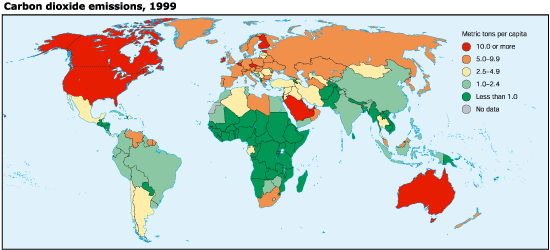We cannot just save the remaining wildlife we have and expect that we will thrive as a species. There is a carrying capacity for all species on earth. We have met ours. About 50% of our world’s population would not be alive today if it were not for synthetic fertilizers. We have figured out a way to use technology to our advantage and bypass the earth’s natural ability to support human life.
In order to address our environmental issues, we must address overpopulation. Tactfully.
We need to educate people (in general, as well as) about family planning and resource conservation, drawing the link between the two and making sure that most of the world population understands this concept. The world’s population is increasing at a rate of 80 million people a year. Some estimates say we could hit over 10 billion people by 2050 if world population is allowed to continue to grow. Low and middle-income nations are expected to be responsible for 98% of future population growth. Over population the following effects:
1. Urban Sprawl
o Natural corridors for animals are being eliminated, cutting animals off from their habitats (not to mention we’re also building over their habitats)
2. Poaching
o The next mass extinction could be human caused.
3. Degradation of land
o Loss of buffer lands (from disasters like flooding)
o Desertification
o Deforestation
o Loss of over 80% of our old growth forests
o 1/5 of global carbon emissions come from deforestation (mainly tropical)
o Over 60% of biodiversity exists in forests.
4. Over fishing
o 20% of our protein comes from fish in the oceans
o It is predicted that we will lose 90% of our oceans edible species by 2048 if unsustainable fishing practices continue
5. Water scarcity
o I predict the next world war will be over water
o We need to change our irrigation technology
6. Global warming
o Weather extremes (increased hurricane intensity and heat wave frequency)
o Drought and wildfires
7. Over crowding
o Need more landfills
o Traffic
o Pollution
o Increased housing prices
o Decreasing wild habitat
Sources:
http://www.populationconnection.org/site/PageServer?pagename=issues_protectingtheplanet
Stan Cox's Sick Planet, Corporate Food and Medicine
Subscribe to:
Post Comments (Atom)

I think overcrowding is a problem in only a select amount of countries like China or India. The United States to knowledge hasn't seen zpg because of immigration not because of a huge amount of births. I can't see education helping the listed problems either. People still smoke and they know it could kill them, it's the same for a bunch of other things too. I don't expect people to care about the forest or poaching anytime soon either.
ReplyDeleteOvercrowding may not be observed in the united states as in other countries (as a literal lack of space), however industrialized nations, the United States in particular have the largest impact on resource use. As a result at some point in time the supply demand curve will break, and we will not be able to avoid the simple problems created by overpopulation by simply throwing money at them.
ReplyDeleteThe environmental problems that come with overpopulation should be enough alone to force us do something about the problem. Whether its sanitation issues from overpopulation, or Resource usage issues such as forest degredation, overfishing, or water supply issues, our current habits cannot go on forever and if population keeps increasing we will eventually be forced to do something.
ReplyDeleteIn some countries such as India, the average birth rate has decreased with education even though not a lot. However, industrializing countries, such as Japan, show relatively lower birth rates since there's a greater focus on careers and earnings,so I believe it is possible for education to help limit population growth. Although, solutions to our resources and wildlife, I think, depends on if the interest to preserve them is strong.
ReplyDeleteI definately agree that we need to conrol our population. Earths carrying capacity for humans to live by an average standard of living is about 2 billion people, which we have already overshot considerably. In some third world countries, the number of children women have determines their status in society. Not only does there need to be more education about family planning and more oppurtunities to get birth control; there needs to be more oppurtunies for women to gain status through work or community involvment and not number of children.
ReplyDeleteWhile there is a realization that, even with advancement in technologies, the Earth can only support (and hold) a certain population size, it seems that the biggest barrier is the ethical one. How do we as a global community determine how to control population growth, or how to overcome the barriers that we will inevitably face? Can technology overcome seemingly unavoidable problems?
ReplyDeleteThis issue of population is a very sensitive one. As stated, lower income nations will account for most of that growth, therefore implied that these are the countries where population control needs to be stepped up. Especially in countries without the resources to manage grow efficiently. Sounds like saying "you're too poor to have children." Family size is a cultural value and I'm very interested to see how developed countries will preach and attempt to impose theirs on the world. As Lisa said, education and industrialization seem to result in lower birthrates. Environmentalism is a luxury, maybe we should help the lower and middle income countries afford that luxury rather than impose our culture on them.
ReplyDeleteThe most of effective tool to slow and ultimately reverse population growth is through the education of women. Keeping women gainfully employed creates an opportunity cost for having children.
ReplyDelete